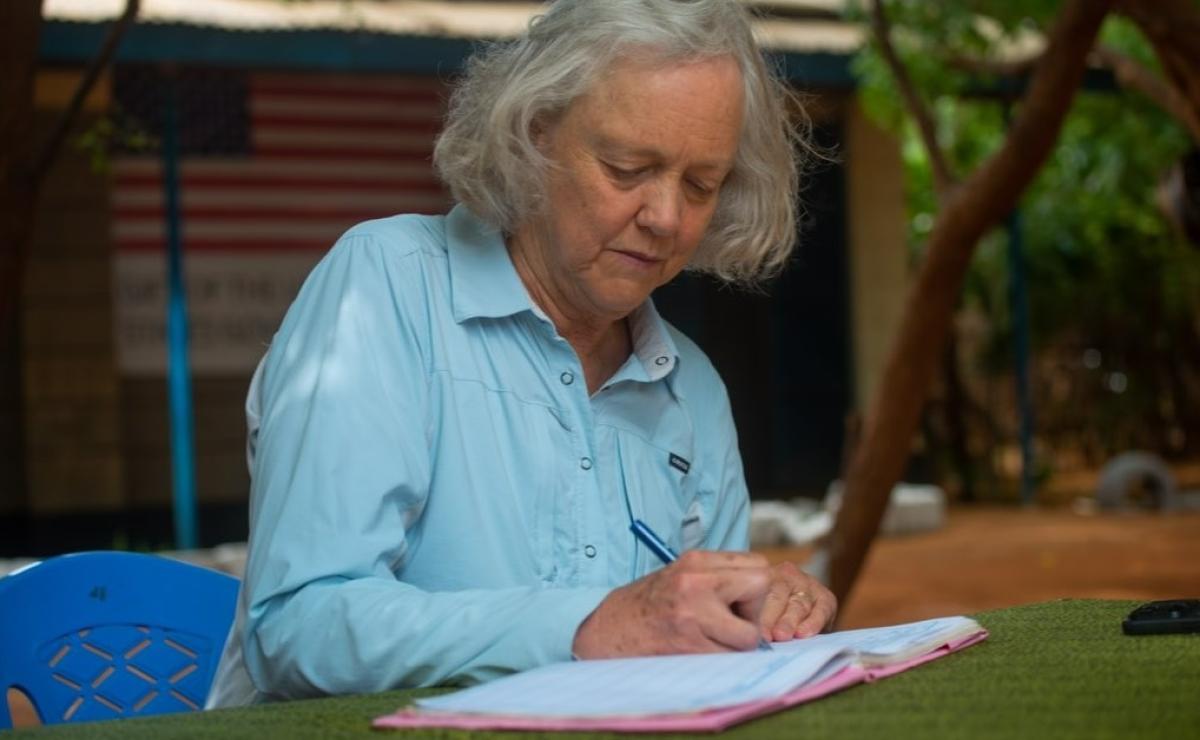United States Ambassadors for Kenya and Somalia visit Dadaab Refugee Camp

United States’ Ambassadors to Kenya and Somalia, Amb. Meg Whitman and Amb. Larry Andre, respectively, visited projects across Dadaab Refugee Camp accompanied by Heads of Sub Offices for UNHCR, the UN Refugee Agency and World Food Programme (WFP). Key partner agencies were also represented during the visit. Before the visit to Hormuud Primary School at Ifo Camp, the delegation visited food distribution centres and health centres receiving nutritional support funded by the US Government.
The Lutheran World Federation (LWF) is partnering with the United States Bureau of Population, Refugees, and Migration (PRM) to enhance child safeguarding and quality education across the refugee primary schools in Dadaab and Kakuma.
During the Hormuud school visit, the delegates interacted with learners with special needs, the information, communication and technology room and the school meals programme food collection point.
ICT teacher Mr. Ibrahim Adan Osman gave a presentation on advantages of integrating new technology in the curriculum. “It is important to integrate ICT into the curriculum. From Hormuud experience, we have seen an increase in enrolment. Since learners do not have the gadgets at home, and some may be too expensive, they look forward to making use of the gadgets that we have in the ICT laboratory,” he said.
ICT also helps to bridge the gap between theory and practice as learners are able to access photos and videos and illustrations that make it easier for them to understand concepts. With better understanding, it becomes easier for teachers to complete the learning syllabus in time.
At the classroom for special needs learners, the delegates were able to interact with children with various disabilities and better understand their learning conditions. Guided by Teacher Joshua Wandili, they learnt how children make use of sign language to communicate and learn.
In Mr. Wandili’s classroom, there are a total of 45 learners with both hearing and visual impairments. 12 visually impaired (8 boys and 4 girls) and 33 hearing impaired (17 boys and 16 girls). “There is a mainstreaming initiative currently in place, whereby learners who do not have severe disabilities are taken to the mainstream and are catered for by the regular teachers,” said Teacher Wandili.
The regular teachers have been trained on inclusive education and receive daily support from Lutheran World Federation (LWF) and Humanity and Inclusion (HI) staff. Other learners are put under home-based care whereby they are nurtured from their homes through daily visits by field staff.
“Thank you for the strong partnership to support refugee and host communities. I really appreciate everything you do,” wrote Ambassador Meg Whitman on the visitor registration book and on her social media account. She also appreciated the recognition given to the US donors including Bureau of Population, Refugees, and Migration (PRM), USAID, UKAID, Canadian Government, United Nations Central Emergency Response Fund (CERF), Governments of Korea and Japan, European Union Civil Protection and Humanitarian Aid (ECHO) and German Humanitarian Assistance.

